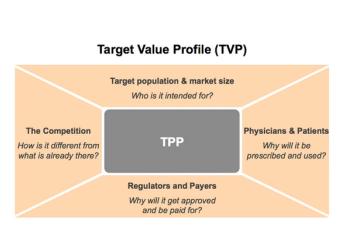
Specialty drug sales, record-breaking M&A paired with tax synergies, and global expansion helped to bring a new face into this year’s Pharma 50 top 10, and substantially boosted the rankings of several others.

Specialty drug sales, record-breaking M&A paired with tax synergies, and global expansion helped to bring a new face into this year’s Pharma 50 top 10, and substantially boosted the rankings of several others.

Sarah Chaney gives an in-depth look at the Salix-Valeant acquisition - how analysts and investors can affect decision-making and potentially drive poor behavior.

Pharm Exec talks to Matt Wallach, President of Veeva Systems, an upstart start-up whose mix of cutting-edge technology and strong customer orientation has brought it to the top rank in providing cloud-based data management services to the industry.

Meike Wenzel and Clifford Hall examine a new concept for early commercialization planning to facilitate good cross-functional working practice.

Mike Straw offers four key changes to address the "lack of love" for pharmaceutical procurement functions.

Successful outsourcing can provide pharma companies with high-value, cost-effective analytics. But there are many challenges to overcome, write Ram Moorthy and Dharmendra Sahay.

The need for proactive pharmacovigilance is being increasingly acknowledged by all companies, regardless of their size and product mix, writes Dr. Chitra Lele.

Rick Lynch, the Army General who led the Iraqi ‘surge’ campaign, cites nine lessons that pharma leaders can apply in today’s come-from-behind struggle for market share.

A new PwC survey reveals a strong need to fully embrace alternative commercial methods-not in a blind frenzy but through careful evaluation of which new sales strategies have true innovative potential.

Adam Sherlock looks at why pharma companies have started taking regulatory information management (RIM) more seriously.

Pharma is still a 21st Century growth industry, but investment dynamics no longer favor organic growth. Check out our strategic outlook infographic.

Examining a new three-part formula to enable the supply chain function to manage market pressures while delivering on the bottom line.

Pharm Exec profiles Sanofi EVP Pascale Witz, tagged with the assignment to move a lumbering biopharma giant closer to the embrace of the patient perspective in healthcare.

Two words define the future of commercialization project management: Faster and Better

MNCs can learn a lot from generic companies in their strategic approaches to emerging markets.

California's Bay Area and the Boston/Cambridge nexus continue to dominate bioinnovation in the US. Pharm Exec looks at the factors contributing to the strategic dominance of these regions.

Profitability now depends on metrics to help companies answer a key strategic question: "stay the course" with more investment in sales and marketing? Or "stand down" and deploy those scarce assets somewhere else?

Millennium Takeda's new president, Anna Protopapas, explains the life choices that brought her from Cyprus to Cambridge-and a lead position in the hotly contested search to make cancer a treatable disease.

For Big Pharma, the merits of strategic focus and operational discipline are more important than ever. It is time to be decisive - muddling through is so yesterday.

Successful innovation now has to align with key metrics of value-can an old baseball metaphor help guide the way?

Failure to improve successful launch rates will doom your company to marginalization in the fight for brand affinity - not to mention the prescriber loyalty that keeps medicines in play for the long haul.

Pharm Exec convenes a diverse panel of experts to identify the key markers of common ground: its time, people, and money against that greatest intangible-hope.

Real-world pharmacoeconomic data can provide critical insight for maximizing US market access and oncology product differentiation, and should be central to the overall brand strategy of any oncology product

New drug delivery mechanisms and devices are an opportunity to build relationship with the ultimate customer: the patient.

Companies are leveraging combinations of drugs and other products to gain competitive advantage and market share.